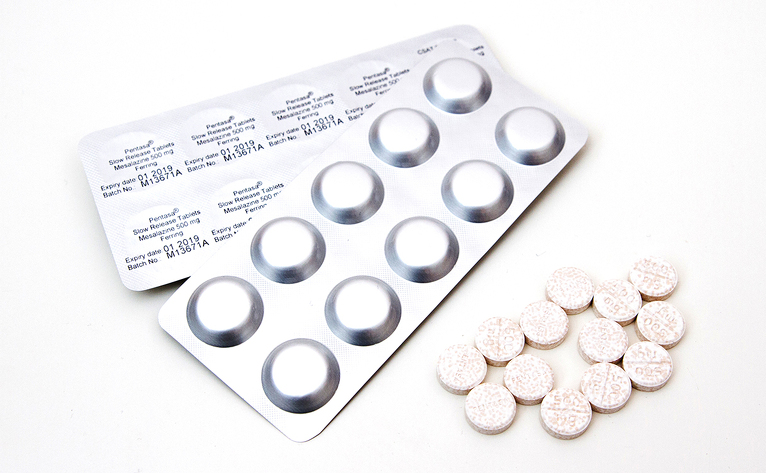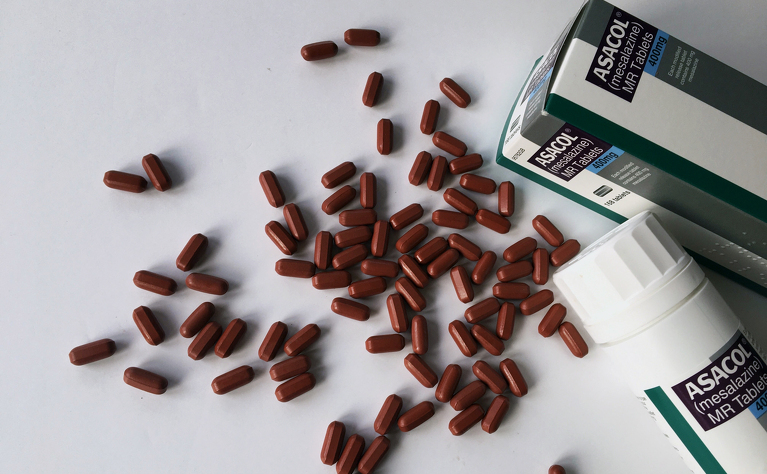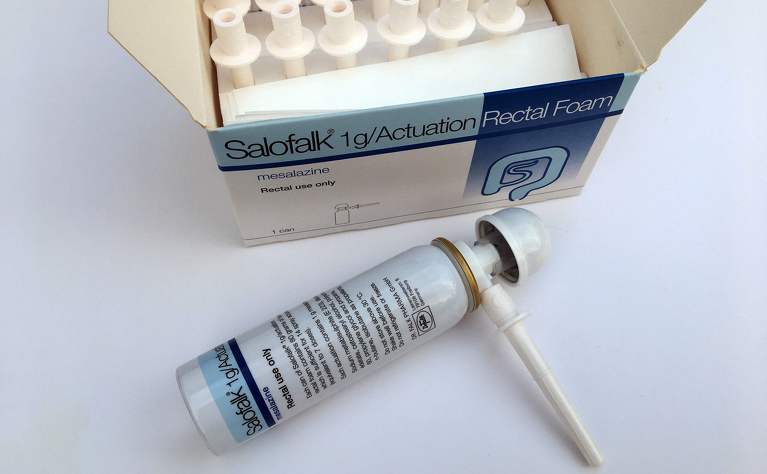
Mesalazine (also known as mesalamine) is one of a group of medicines called aminosalicylates (5-ASAs) and is one of the most commonly used aminosalicylates. It is most effective in treating mild to moderately active ulcerative colitis (UC) as the active ingredient (mesalamine) acts topically on the innermost lining of the colon which UC typically affects.
Mesalazine is thought to be less effective in the treatment of Crohn's disease where inflammation can affect the entire thickness of the digestive tract wall. Existing data shows little benefit for the use of mesalamine in treating Crohn's disease.1
Higher doses of delayed‐release mesalamine may be effective in those with mildly to moderately active ileocolonic Crohn's disease, where inflammation is located in the end of the small intestine (the ileum) and the colon (large intestine). However, it is still not as effective as corticosteroids like budesonide in reducing inflammation in Crohn's disease.2
It’s not known exactly how mesalazine works but it is thought to affect the way the cells lining the intestine make and release certain chemicals which are thought to have an affect on IBD.
There are various different brands of mesalazine and they are all manufactured in slightly different ways to allow the mesalazine to be released in the part of the intestine which requires it the most. The type of mesalazine you are prescribed will depend on where your IBD is.
There are many different brands of mesalazine available. These include:
The different brands are all produced slightly differently and may target slightly different areas of the intestines so it’s important to check the brand you receive from your doctor when picking up a new supply.

There are a few different preparations of mesalazine. These include:

As with most medications some people can experience side effects when taking them. Reported side effects vary between the different brands but some of the common side effects include:
In rare cases mesalazine can cause problems with your blood. If you have any unexplained bleeding, bruising, red or purple discolourations of your skin, a sore throat, fever or if you feel generally unwell contact your doctor immediately.
Before taking mesalazine you should let your doctor know if any of the following apply to you:
1. https://www.cochranelibrary.com - 'the existing data show little benefit for mesalamine.'
2. https://www.cochranelibrary.com - 'Higher doses of delayed‐release mesalamine at 3‐4.5 g/day may be as effective as budesonide in those with mildly to moderately active ileocolonic disease. Although the superiority of conventional steroids has not been consistently demonstrated, in the absence of a sufficiently powered formal equivalence or non‐inferiority study, it is likely that delayed‐release mesalamine would be inferior to conventional steroids.'